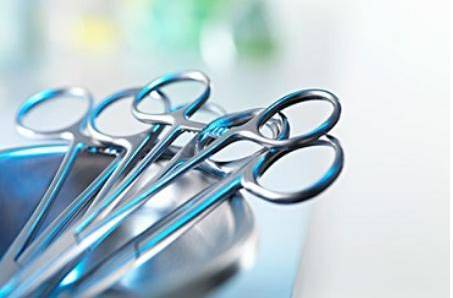recently, the 2017 China Medical Device Industry Development Forum, the pre forum of the 34th national pharmaceutical industry information conference, was held. According to data provided by Lu Minli, Consulting Director and chief consultant of China Pharmaceutical Industry Information Center, from 2007 to 2015, the number of manufacturing and operating enterprises of class II and class III medical devices increased to 9517, an increase of more than 2000; the number of experienced enterprises of class III medical devices increased from 2123 to 2614. There are five trends and five hot spots in the medical device industry.
five trends

According to Lu Minli, the future development of medical device industry will present five trends:
1. China will become a global medical device manufacturing center;
2. The market scale will maintain a rapid growth of more than 20%;
3. The process of "import substitution" of domestic equipment was accelerated, and the industry concentration was increased;
4. The industry is becoming more and more standardized;
5. Big data platform and intelligent equipment will promote the rapid development of device service industry and create new growth points.
According to the data released by the Ministry of industry and information technology, in 2016, the fastest growing sub industries in the pharmaceutical industry were medical equipment and equipment manufacturing, Chinese Herbal Pieces processing, health materials and medical supplies manufacturing. It can be seen that the medical device industry has a strong growth force and a larger development space.
five hot spots

Lu Minli said that enterprises should deeply study policies and hot spots in the field of medical devices and seize opportunities.
Hot spot 1: increment of basic medical use of domestic equipment. Based on the promotion of hierarchical diagnosis and treatment, the allocation of medical resources sinks to the grass-roots level, and the advantages of domestic medical equipment enterprises are outstanding. However, the localization and import substitution of medical devices are the general trend. The domestic medium and high-end equipment will become the investment hotspot, such as high-end CT equipment, color Doppler ultrasound and medical rehabilitation equipment.
Hot spot 2: the State supports the third-party service of medical devices. In the future, patients' requirements for medical examination and trust between doctors and patients will be improved. Independent image center, third-party inspection and other social service institutions will emerge as the times require. At present, the national policy also supports its untiing time and again.
Hot spot 3: increased demand for innovative medical devices. According to the report of the State Health Planning Commission in 2015, the number of PCI operations in China has increased steadily since 2009. In 2015, the total number of coronary intervention cases in mainland China reached 567 thousand and 600 cases, and the average stent implantation for each coronary heart disease patient was about 1.5. At present, the domestic market is mainly drug-eluting stents (DES). The fourth generation of biodegradable scaffolds is composed of biodegradable materials (such as polylactic acid), so it is expected that they will gradually replace drug-eluting scaffolds.
Hotspot 4: POCT (real-time detection) accelerated development. At present, POCT products have been widely used in hospitals, ICU, emergency, clinics and patients' homes, and can detect most of the routine clinical indicators. In 2012, the global POCT market was about 10 billion US dollars, and maintained a compound growth rate of 8%. China has a large population and a large difference in medical resources. The market is still in the early stage of development, which is at the level of European and American countries in the 1990s. The terminal penetration rate of hospitals is very low, and POCT has a huge potential.
Hotspot 5: increased application of orthopedic implants. With the coming of aging society in China, the growth rate of orthopedic implant industry will remain at about 20%. According to relevant data, the global orthopedic implant market has reached US $47.261 billion in 2016 and is expected to reach US $74.796 billion by 2023, which shows that China has a huge development space and investment opportunities in this field.